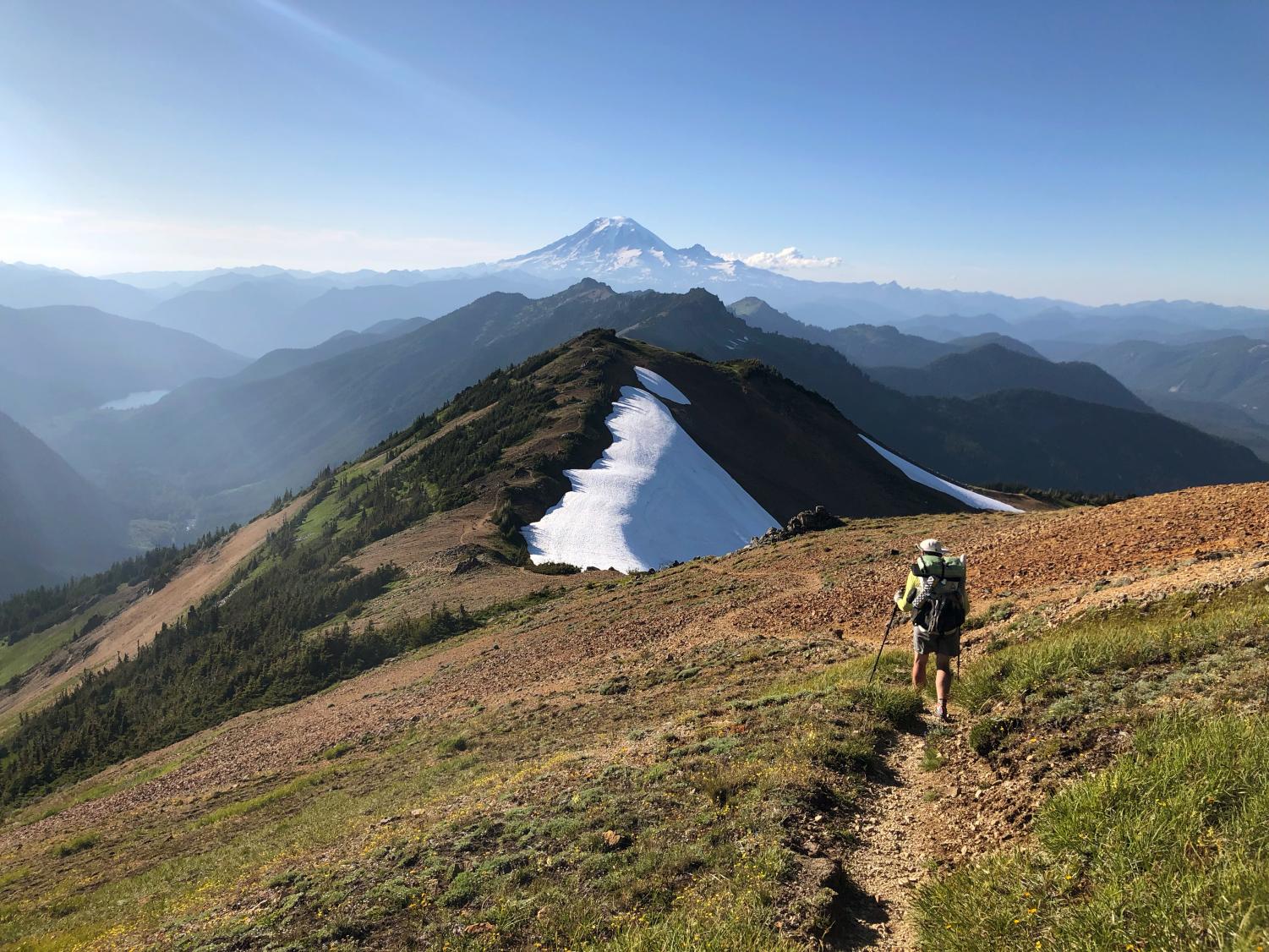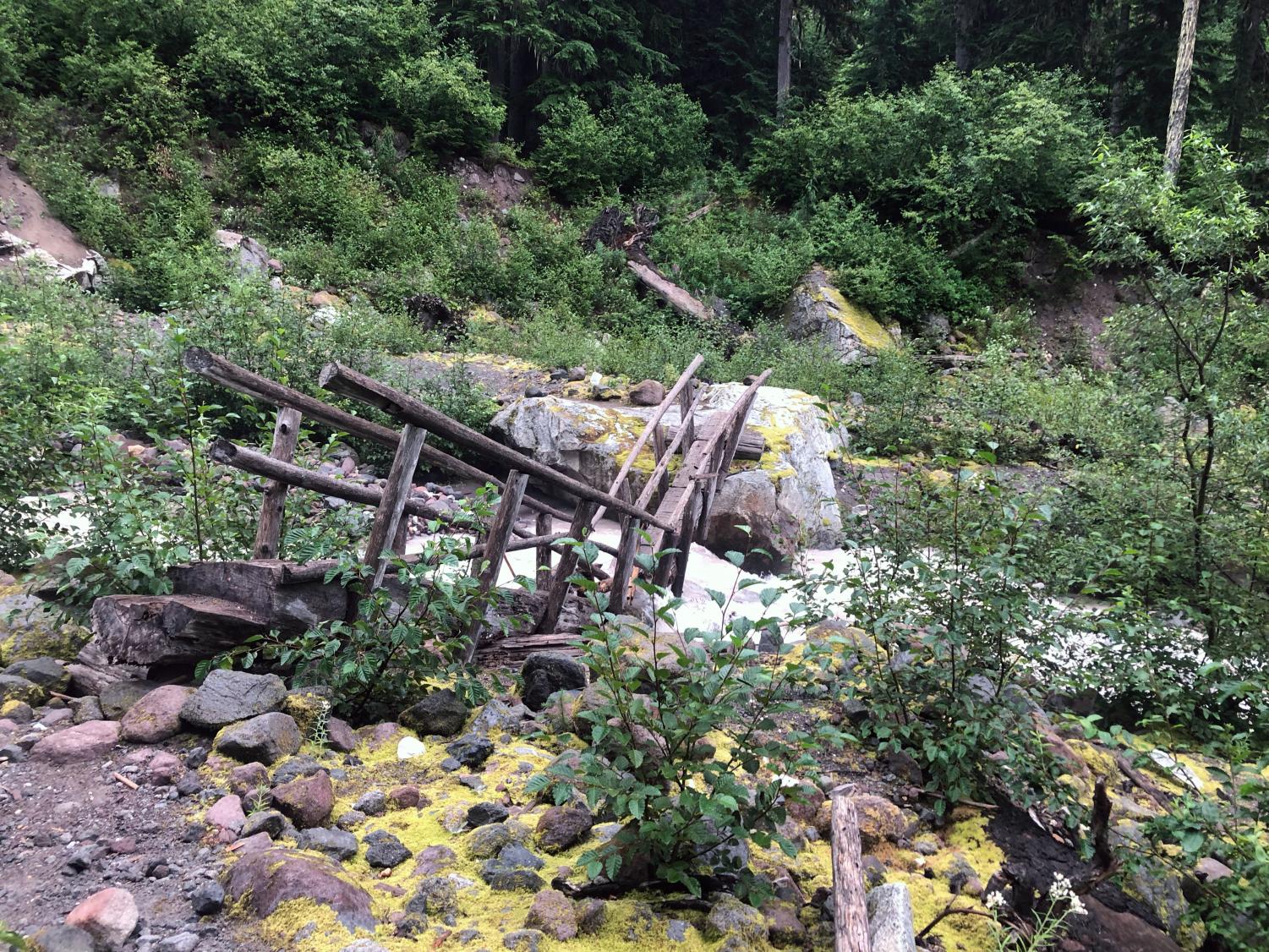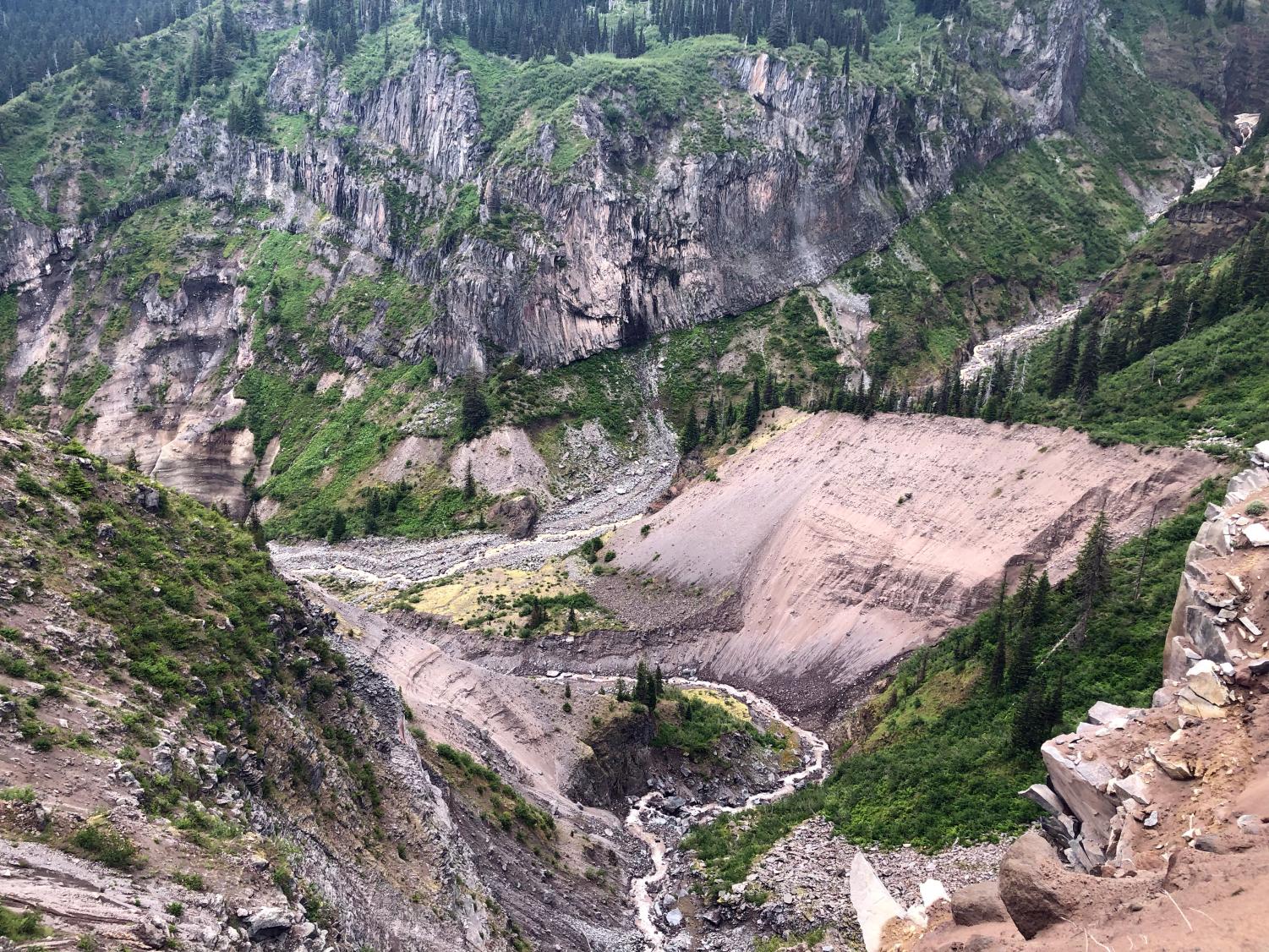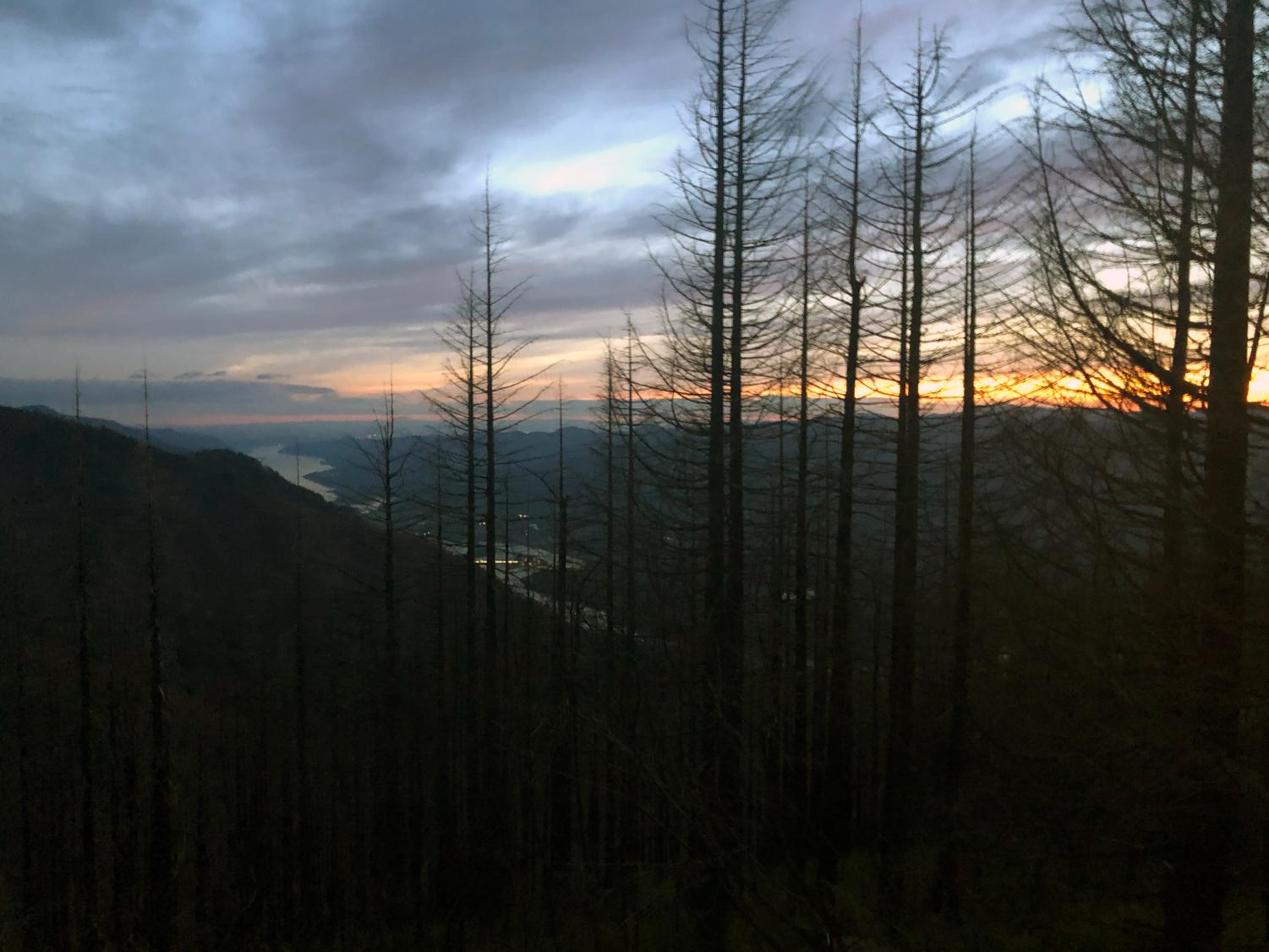
Andrew was born in Chandler, Arizona, but has lived near Portland nearly his whole life. He loves the temperate weather in Oregon, and often takes walks...


February 19, 2020
I recoiled from the thrust of an insect bite I had never seen before, tears welling up in my eye and beginning to roll down my cheek. Skin only millimeters from the whites of my left eye began to swell up massively; the itching sensation spread across my face so viciously I began to claw at my skin, wishing for some sort of relief. The bug had struck me with the force of a fist, causing it to immediately fall down towards the brown, rock-hard forest floor, dead.
Right then, I regretted my decision to embark on this 500-mile journey. In reality, that regret was simply a naive whim that misunderstood what I could learn, and did not respect the truth that I was about to discover.
The Pacific Crest Trail, also known as the PCT, is a hiking route that goes from the American-Mexican border to Canada, adding up to a whopping 2,653 miles in length. The landscapes range from snow-packed rocky mountains, to cloudy rainforests, and all the way to barren deserts. For me, it was where I found discipline, peace, and satisfaction. With the right determination, you might find the same improvements.
As I hinted at, I developed a deep hatred for many parts of this painful stretch of land. At almost every opportunity, it attacks you with ferocious mosquitoes, narrow mountaintop trails with dangerously slim margins of error, and stark inclines that leave you breathless and exhausted. It robs you of all your strength and leaves you stranded, hundreds of miles away from home.
I waded through icy peaks, embedding my trekking pole into their frosty exteriors, hoping the slippery slope wouldn’t carry me down onto the rocky spikes below. Huge rolling hills barbed with thousands of burnt, ashy trees surrounded me in every direction, along with towering boulders scented with sweet petrichor from the rains that battered the ground during the nights before. Rivers that were dried out from the summer heat littered the landscape. The rivers that were still flowing were occasionally spanned by broken-down bridges that seemed to have fallen centuries ago.

While sometimes tedious, the Pacific Crest Trail is undeniably beautiful.
I had only a surface level idea of the hardships I would face going in; my attitude at the start was moderately lighthearted. Almost exclusively acknowledging the physical aspects, I ignored the physiological drains it would inevitably take. I only saw someone other than my father about twice a day, and my isolation from most of humanity quickly amounted to a heavily introspective mindset and the meticulous mental dissection of who I was. Using music, school, and other distractions, most of us avoid being truly alone with ourselves, but in the wilderness, alone with only a few others for company, silence and deeper self understanding were things I was forced to cope with.
Despite the hardships, I found the stable schedule of waking up early every morning, dismantling my simple abode, filtering my water for the day, and moving on my way for the next set of 25 miles to be paradoxically freeing, stress-relieving, and most of all, tranquil. The steadiness of a goal like 500 miles calms the daily anxieties that plague us: the grades we must get, our need to get into the best college, or our career plans.

In a place such as the Pacific Crest Trail, all these endeavors seem to become trivial and even pointless. This whimsical apathy I found, although unproductive on the surface, is vital to remain sane and joyful in a world as chaotic as this.
For the first week, my feet were in excruciating pain, feeling as if the flesh on them was inverted outward. Blisters erupted across them, leaving my skin peeling off. Despite this, my feet became tougher as time went on, and the pain nearly came to a complete stop.
Looking back, I now understand how this agonizing experience, and my perseverance over it, serves as a perfect metaphor for how we should live our lives. After being stung that night, I had convinced myself that it was time to leave, and get back home somehow, without taking another step. However, I had an epiphany waking up that morning:
Suffering, in most cases, is actually good.

From that point on, I never regretted the decision to hike the Washington section of the PCT again. I was filled with a newfound motivation, motivation that remains with me even when writing these words. My journey, while at times agonizing, ultimately led me to satisfaction that I would never have found at school or in my mundane life at home.
Whatever the journey is for you, whether it is one like mine, or one completely different, it is important to remember suffering is the only barrier between you and excellence. Peace is not found within effortlessness; rather, it is the steady pursuit of a goal not easily attainable that brings tranquility.

Andrew was born in Chandler, Arizona, but has lived near Portland nearly his whole life. He loves the temperate weather in Oregon, and often takes walks...
Tom McLaughlin • Mar 5, 2020 at 12:54 pm
Powerful writing, Andrew. You’ve got talent! Keep writing!
I was particularly drawn to this statement: “most of us avoid being truly alone with ourselves, but in the wilderness, alone with only a few others for company, silence and deeper self understanding were things I was forced to cope with.” Believe it or not, I sometimes struggle with truly being alone with myself. Those are often the times I play game after pointless game of Spider Solitaire!
I’m so grateful for wilderness places that invite being with myself and Beauty.
I’m also grateful for the reminder of the potential for good in suffering.
Thanks for writing a story I recognize.
Caitlin Hoemmen • Feb 27, 2020 at 2:25 pm
Awesome storytelling Andrew! I am happy that you shared your story of overcoming such a struggle. I am impressed by your skill of writing and your story, it makes me want to make my dream of hiking the PTC more of a reality! Looking forward to hearing and reading more stories from you in the future!
Dakota Canzano • Feb 25, 2020 at 10:17 am
I am so proud of you Andrew! You are such an excellent writer and I have enjoyed watching you grow. Awesome job on this 🙂
Denise • Feb 24, 2020 at 9:36 am
Andrew you are an eloquent writer. I enjoyed the article immensely. Thank you for sharing this adventure with us. I look forward to reading more from you.
Robert Clair • Feb 21, 2020 at 6:27 am
Andrew
I’m so proud of you. Thank you for sharing how this journey challenged and changed you . This trek with all of its toil and pain taught you to grasp a profound wisdom for life: to value suffering as a path to hope and ultimate gain. Your story is a tremendous inspiration to help us navigate through our life trails and treks!
Jennifer • Feb 20, 2020 at 7:17 pm
Andrew-
Your story was so moving and well written. I am impressed. I look forward to reading more of what you write and choose to share.
Jennifer
Skyler Bontemps • Feb 20, 2020 at 5:44 pm
Andrew this is amazing!!!! You added such a great hook in the beginning and made the story altogether very interesting. I’m not surprised you did this good though since you’re already a fantastic writer
Ryan Darmody • Feb 20, 2020 at 3:33 pm
What an awesome adventure and, maybe even more incredible, the insights gained from it. I’m jealous to my core as someone who hopes to bite off a big section of the PCT some day. I applaud your hiking accomplishments and your splendid writing about it!
Lisa Daniels • Feb 20, 2020 at 8:54 am
Thank you for sharing your physical and spiritual journey so eloquently.
Meggie • Feb 19, 2020 at 10:15 pm
I really enjoyed this insight from someone who has hiked a substantial amount of the trail! I have thought about hiking the trail but mostly disregarded this because I had only considered doing the whole thing, which seemed impossible- or not at all. Doing the whole Washington section however, is substantial and sounds so interesting! I enjoyed the scholarly diction used as well.
Liz Banta • Feb 19, 2020 at 10:10 pm
Amazing story! And, so well written! Thanks for sharing.
Santiago Nolasco • Feb 19, 2020 at 9:39 pm
This was a great read Andrew. The value of suffering and self-evaluation is an important topic discussed rarely. You have lots of valuable life experiences and insight, Andrew. Keep on writing, I’m looking forward to the next article!
Hannah Reddick • Feb 19, 2020 at 9:35 pm
Incredible story! I think hiking is an awesome way to get exercise. There’s nothing quite like being alone with nature.